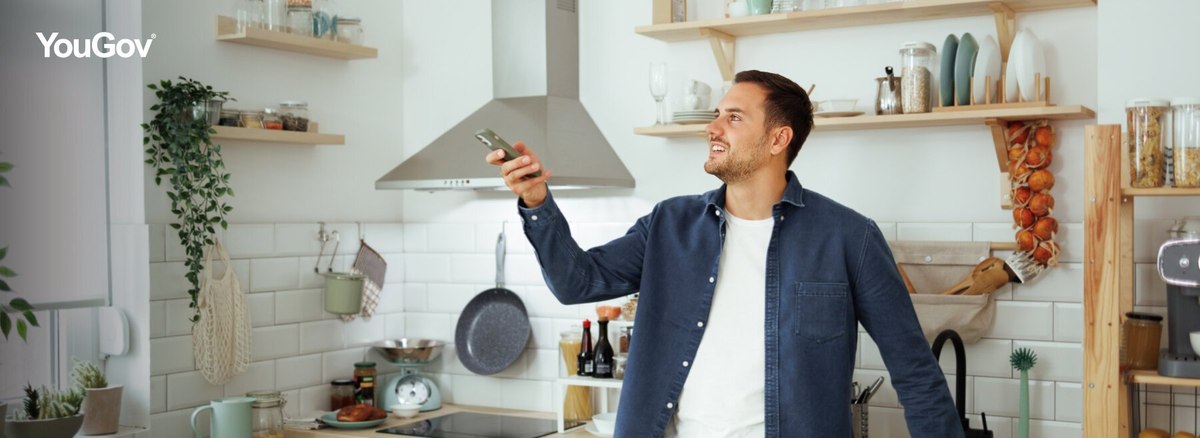Tech companies have long painted a vision of a seamlessly connected home – where every appliance, light, and thermostat work together effortlessly. But that vision remains more aspiration than reality. A recent Forbes analysis notes that the smart home ecosystem “has remained clunky,” with many builders still leaving integration to the homeowner. And while new standards like Matter are designed to bridge compatibility gaps, industry experts told The Verge they have yet to fully deliver the seamless experience consumers were promised.
YouGov Profiles data shows that, for most Britons, the smart home is still a patchwork of popular devices rather than a truly connected ecosystem.
Nine in 10 Britons (91%) say they are aware of smart home appliances, though only a quarter (24%) describe themselves as “fully aware” and knowledgeable about them.
In ownership terms, the most common product reported is the smart meter (39%), although this is typically installed by energy suppliers as part of the national rollout rather than purchased by consumers. Among devices people actively choose, smart voice-controlled speakers lead at 35%, followed by smart home security cameras (18%), smart thermostats (14%), and smart light systems (12%). White goods like connected washing machines (8%), fridges (3%), and dishwashers (3%) remain firmly in niche territory.
Higher-income households are significantly more likely to own multiple devices. For example, 12% own a smart washing machine or tumble dryer compared to 5% of lower-income households, and 7% own a smart vacuum cleaner compared to 2% in the lower-income group. The same pattern appears for smart fridges/freezers (5% vs. 2%) and dishwashers (6% vs. 2%).
Ownership of smart home security cameras (23%) and smart washing machines (12%) are most common among Britons aged 35-44 (23%. Smart fridges, vacuum cleaners, and dishwashers all remain niche, with single-digit ownership across every age group.
When it comes to concerns, price tops the list with 35% saying smart appliances are overpriced. Reliability is also a factor, with a third (33%) citing worries about losing functionality if the internet goes down, and 23% mentioning the need for electricity and internet at the same time. Privacy (31%) and hacking/cyber-attack risks (28%) are prominent too.
Compatibility between brands (13%), cost of running (22%), and the possibility of getting locked out of devices (23%) round out the list of common concerns.
In Britain, smart home technology is widely recognised but selectively adopted. Consumer-driven products like smart speakers and security cameras have gained traction, but most connected appliances remain niche purchases, especially big-ticket white goods. Ownership skews toward higher-income and middle-aged households, while cost, privacy, and reliability concerns remain significant hurdles. For brands, the challenge is to move beyond single-device sales and address the barriers that stop consumers from building truly connected homes.
